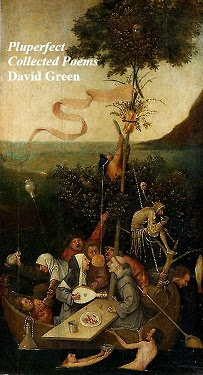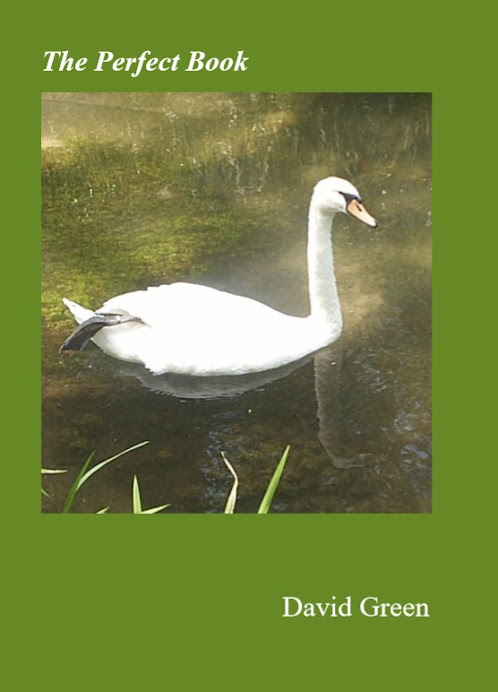
After Ovid
We are nearby standing water where once
Was dry, inhabited land but is home
Now to wading birds and the water fowl
That nest and thrive there. Jupiter came here
In human form with Mercury, his son.
They asked for lodgings at a thousand homes
And a thousand doors were closed against them.
But one house took them in, a humble one
I must admit, tiny and thatched with straw
And reeds but the kindly old woman there, Baucis,
And her equally elderly husband, Philemon,
Took them in, who when young had been married
In that cottage and grew old together,
So uncomplaining of their poverty
That they made light of it and were content.
Whether you call for masters or servants
There, it makes no difference. There is only
The two of them and they both give orders
And follow them. And so, when the Gods came,
Stooping to enter under the low beam
Of the doorway, the old man brought out chairs
While busy Baucis added rough-textured
Covers and they were asked to rest their legs.
She stirred the lukewarm ashes in the hearth,
Resurrected the day before’s embers,
Feeding them with leaves and dried bark and lit
The fire again with her old woman’s breath.
And she brought down stored brushwood from the roof
-dry twigs that she broke into small pieces
to put under the small bronze cooking pot
and prepared the leafy vegetables
that her husband picked from their lush garden.
A darkened back of pig-meat was lifted
Down from a roof beam with a two-pronged fork
and slices of it were cooked to tenderness
in boiling water. Meanwhile the time passed
in friendly conversation, the old folk
bringing a bowl of warm water to bathe
and soothe their guests’ dirty and aching feet.
And there was a wooden couch in the house
On which they spread a rustic covering
That was only brought out on special days.
The Gods sat down. Their table sloped one way,
Though, because one of its legs was shorter
Than the other two so it was shored up
With a tile and then made fresh with green mint.
They spread across it two-coloured olives,
Preserved cherries, salad with radishes,
A lump of fresh, sweet butter and some eggs
That were not over-cooked. All these were served
On earthenware dishes and, after these,
They set down matching engraved cups, cups
Made of beech wood whose insides had been polished
With golden wax. After a short delay
Hot meat was brought over from the fire-place
And, furthermore, before long there was wine.
When this was done with and taken away
There came another course, of nuts and dates,
Purple plums and grapes in wicker baskets
With a fresh honeycomb at the centre.
And this was all offered generously,
Without a thought of the cost to themselves,
And during this, they noticed that the cups
Of wine, which had been so often emptied,
Replenished themselves of their own accord.
Astonished at such strangeness, they trembled
And held their hands up to the heavens. Both
Baucis and timid Philemon offered
Prayers and asked for pardon for their banquet
And their inadequate preparations.
They only had one goose and that guarded
Their tiny house but they were preparing
To slaughter it to feed their guests, the Gods.
But the goose was too quick for them and tired
Them out in the chase who moved so slowly.
It evaded them for a long time then
Seemed to go to the Gods for protection
And the Gods forbade that the goose be killed.
We are Gods, they said, and this selfish town
Is going to suffer as it deserves to
But you two will be spared that misfortune.
You must leave your home and follow our steps
Up that steep mountain together. And they
Obeyed, struggling on their way with sticks
To support them. They were an arrow shot
From the top when they turned to see below
Them their village submerged in swamp water
And while they wondered at the spectacle,
And wept for those who had been their neighbours,
They saw that only their cottage remained
Which had been small though for the two of them,
But had now been turned into a temple.
Columns had replaced the gable supports
And the roof appeared to be made of gold.
The floor was laid with marble and the doors
Were engraved. And Jupiter said softly,
Say, O righteous old man, and woman fit
To have such a righteous husband, what wish
You would like granted. And Philemon
Spoke with his wife briefly before saying
What decision they had agreed upon,
We ask to be priests and keep your temple
And, because we have lived so happily,
That we may depart this life together
So that I never have to see the grave
Of my wife, nor she my burial place.
And their wish was granted. They looked after
The Gods’ temple for the rest of their lives
Until, weakened by their advanced old age,
While they were standing by the temple steps
Telling the fortunes of the place, Baucis
Observed old Philemon come into leaf
And Philemon saw Baucis do the same
And as the tree-top formed over each face
They both said, Farewell, Dear at the same time
And their mouths were covered over by bark.
And to this day, the Phrygians who live
There still point out the tree trunks side by side
Made from their two bodies. Some trustworthy
Old men told me this story (and there’s no
Reason why they would have made it all up).
I saw tributes hanging from the branches
For myself and, adding some of my own,
Said, Those who love the Gods are looked after.
Those who honour them are honoured themselves.










